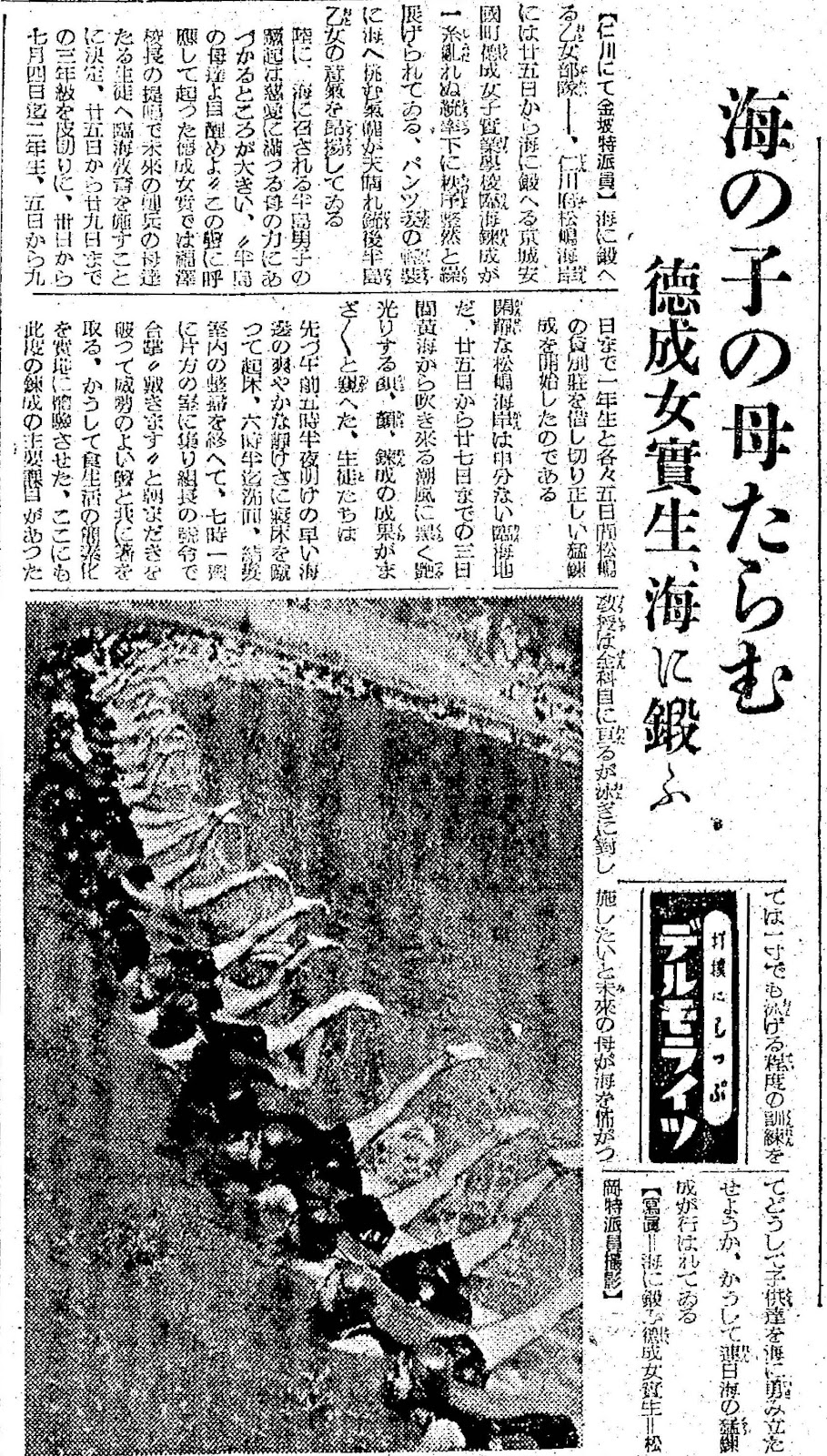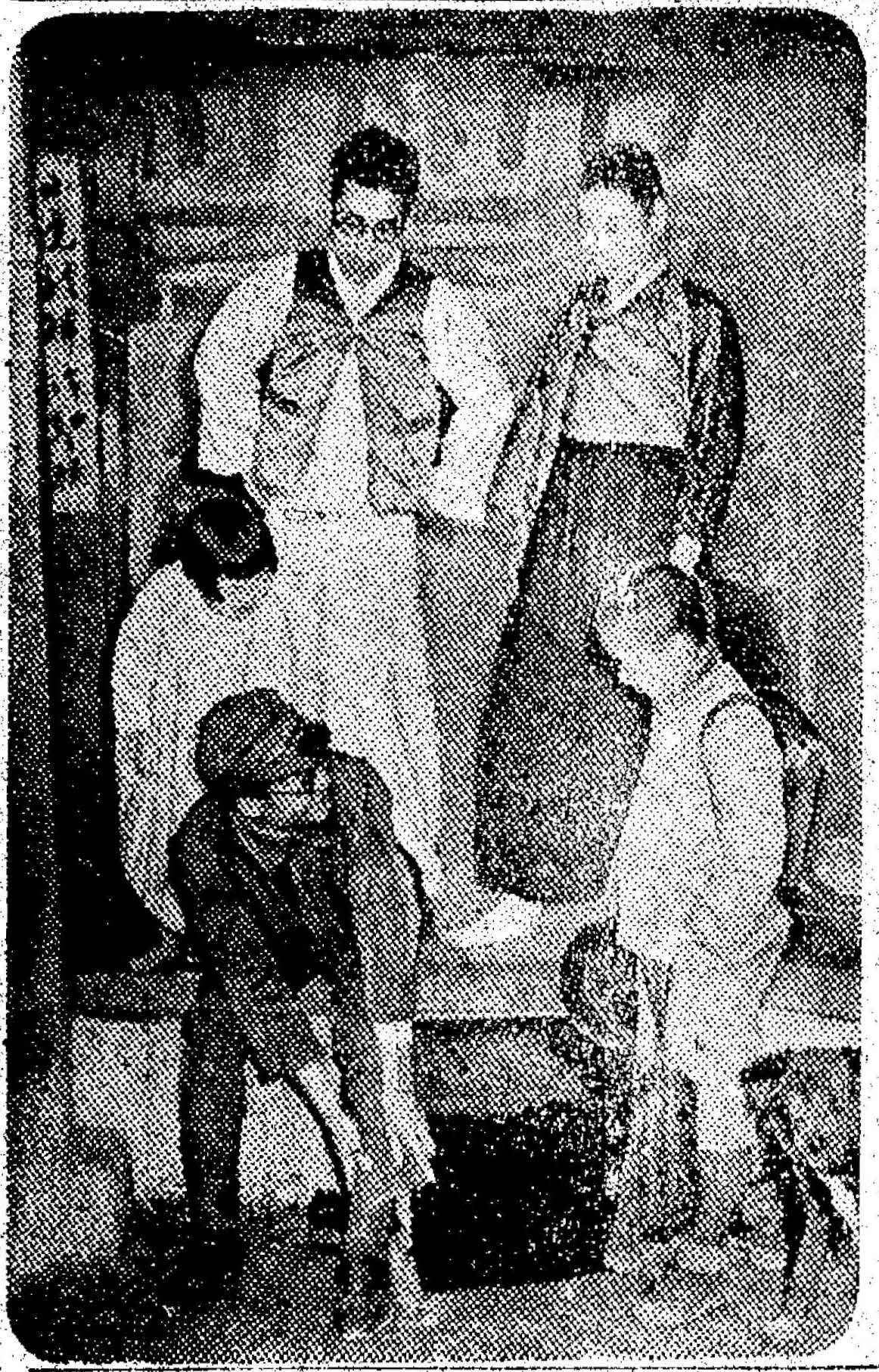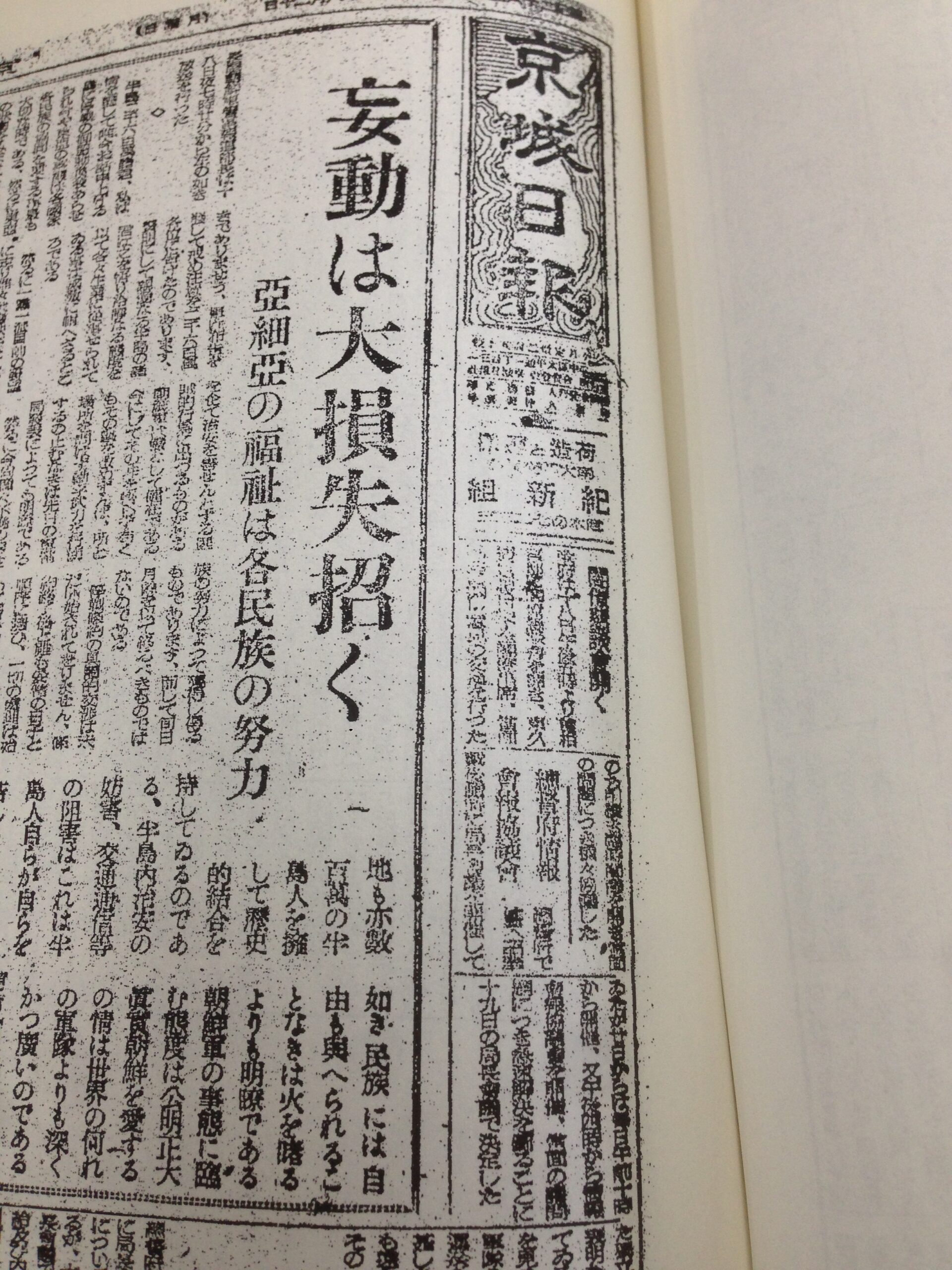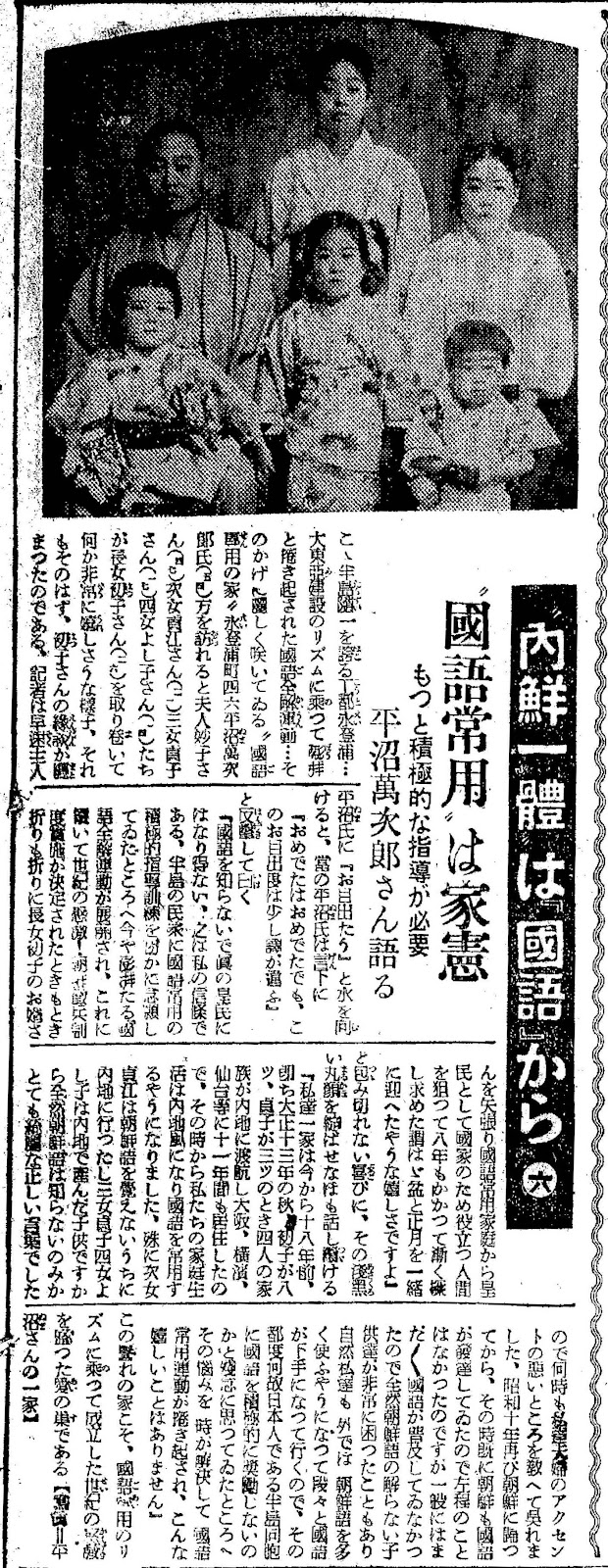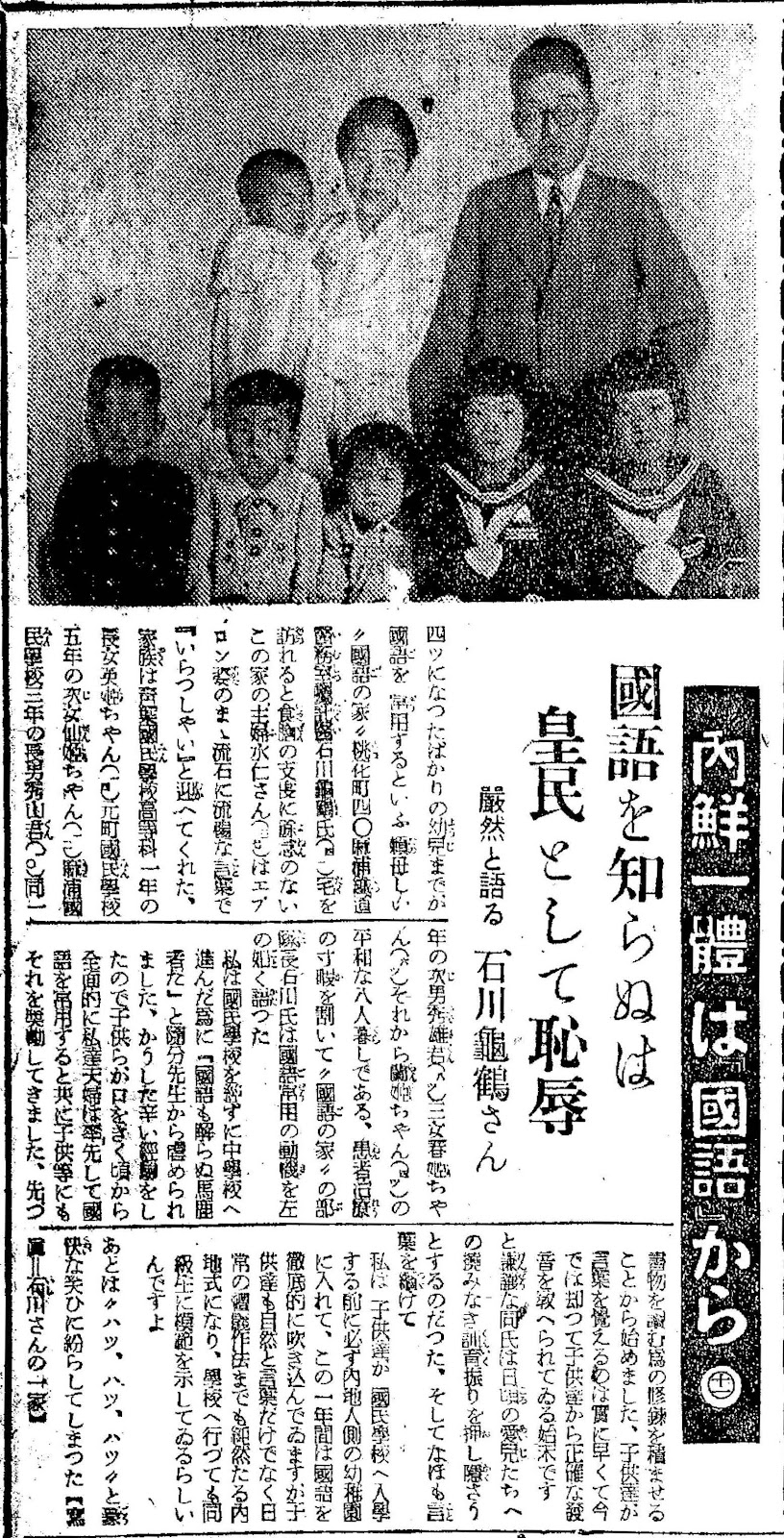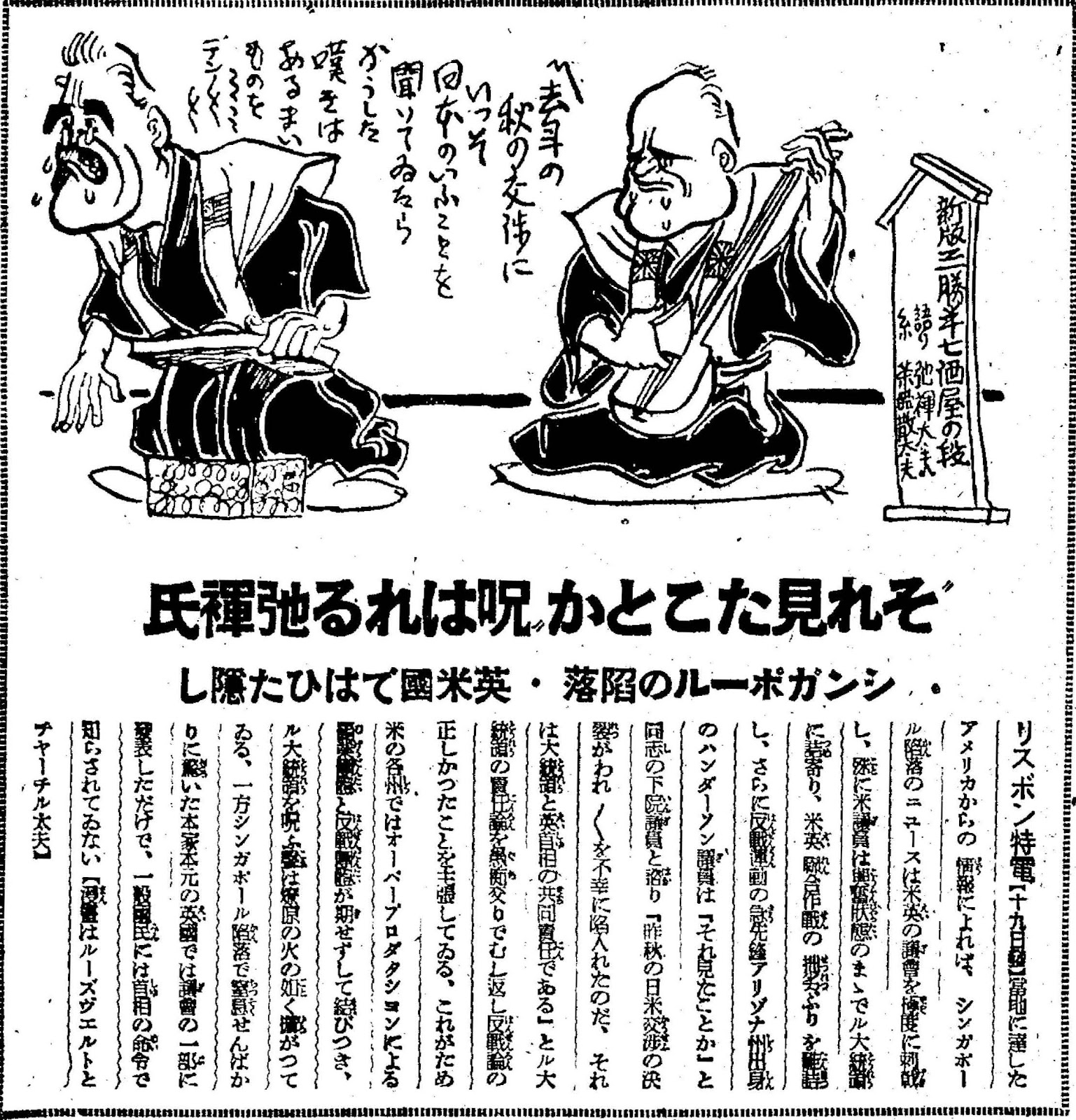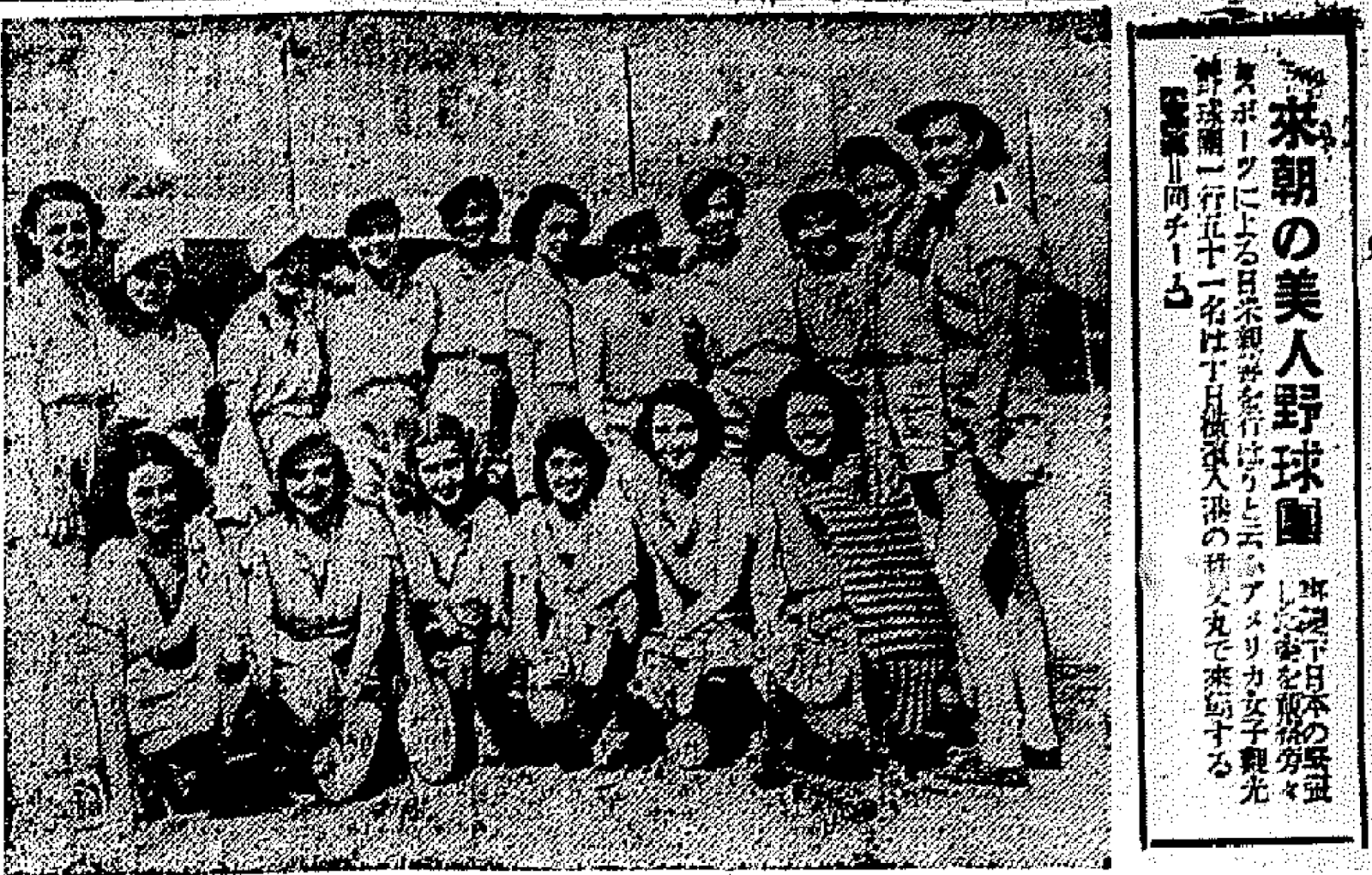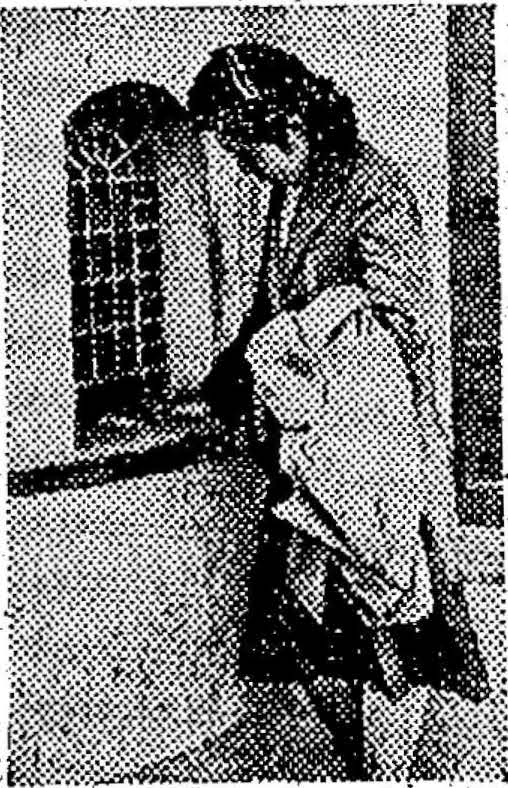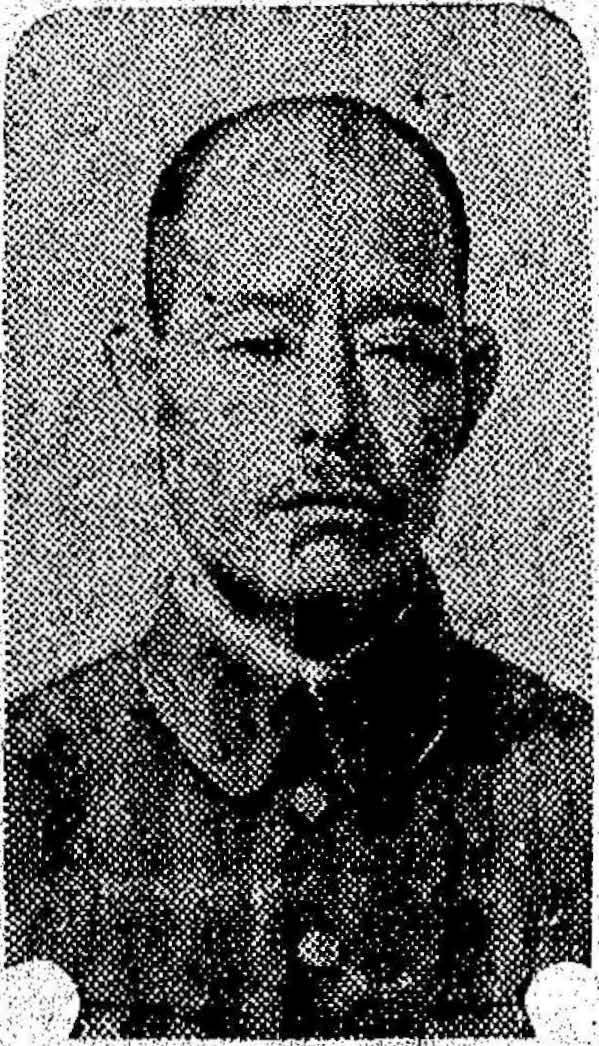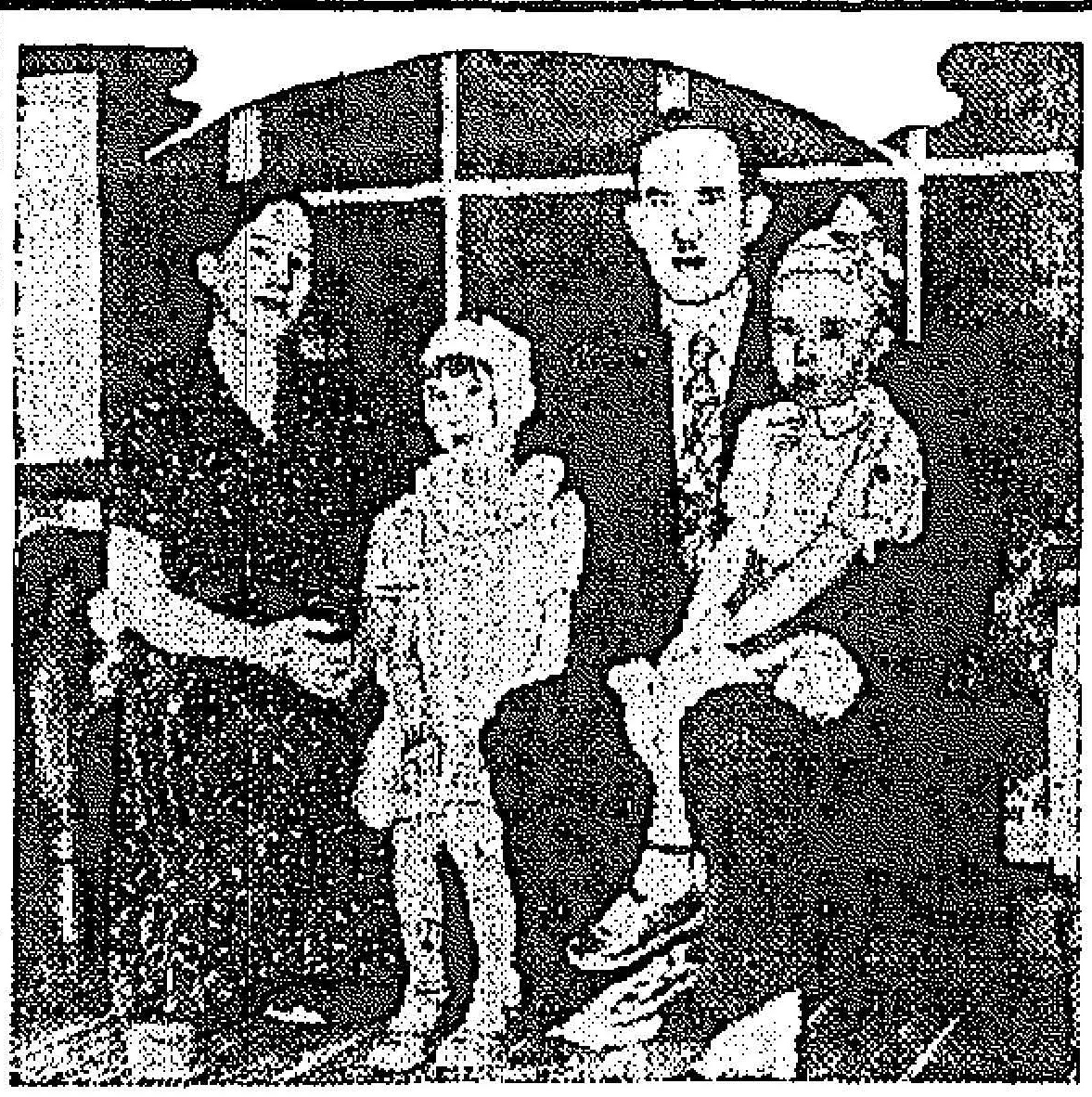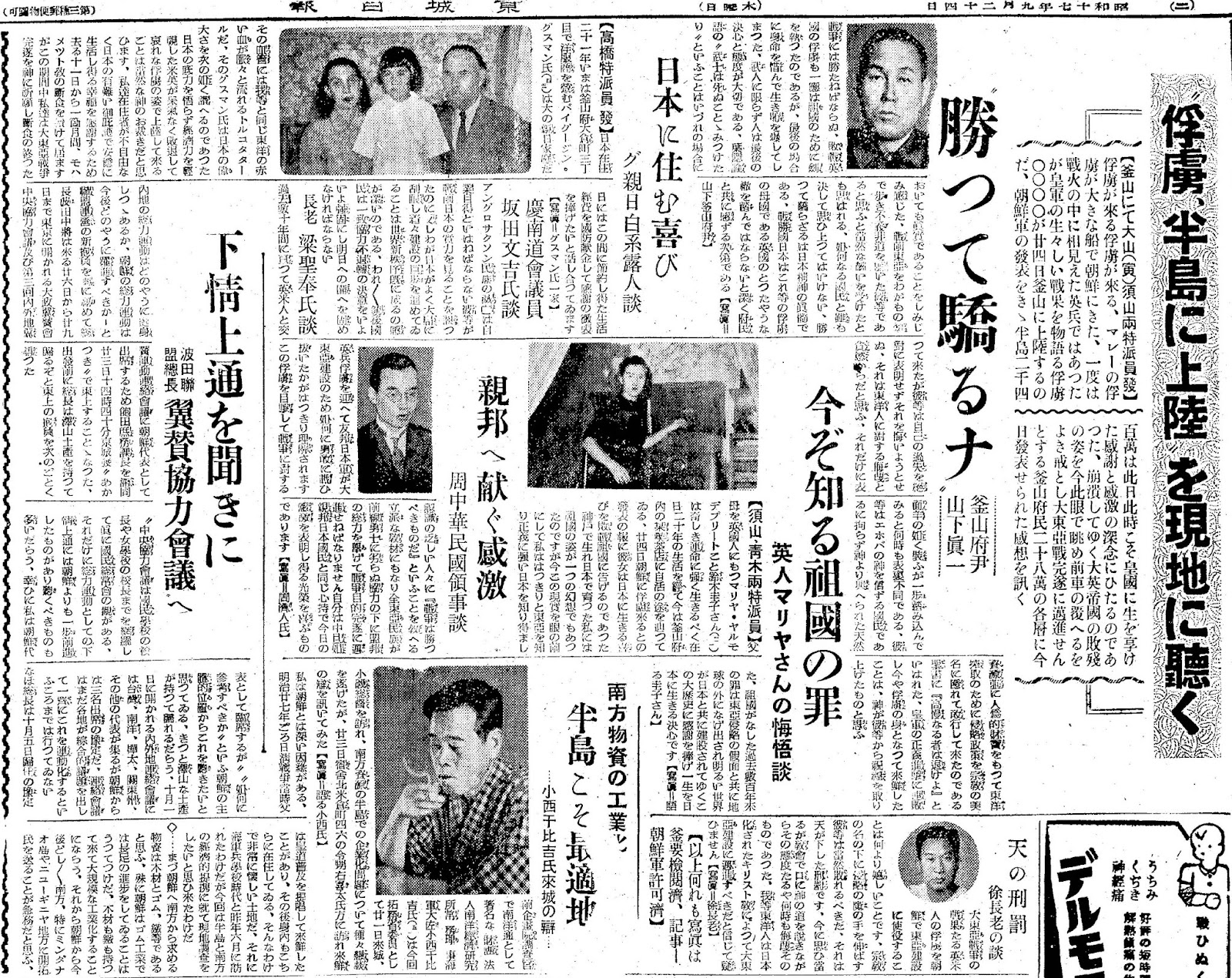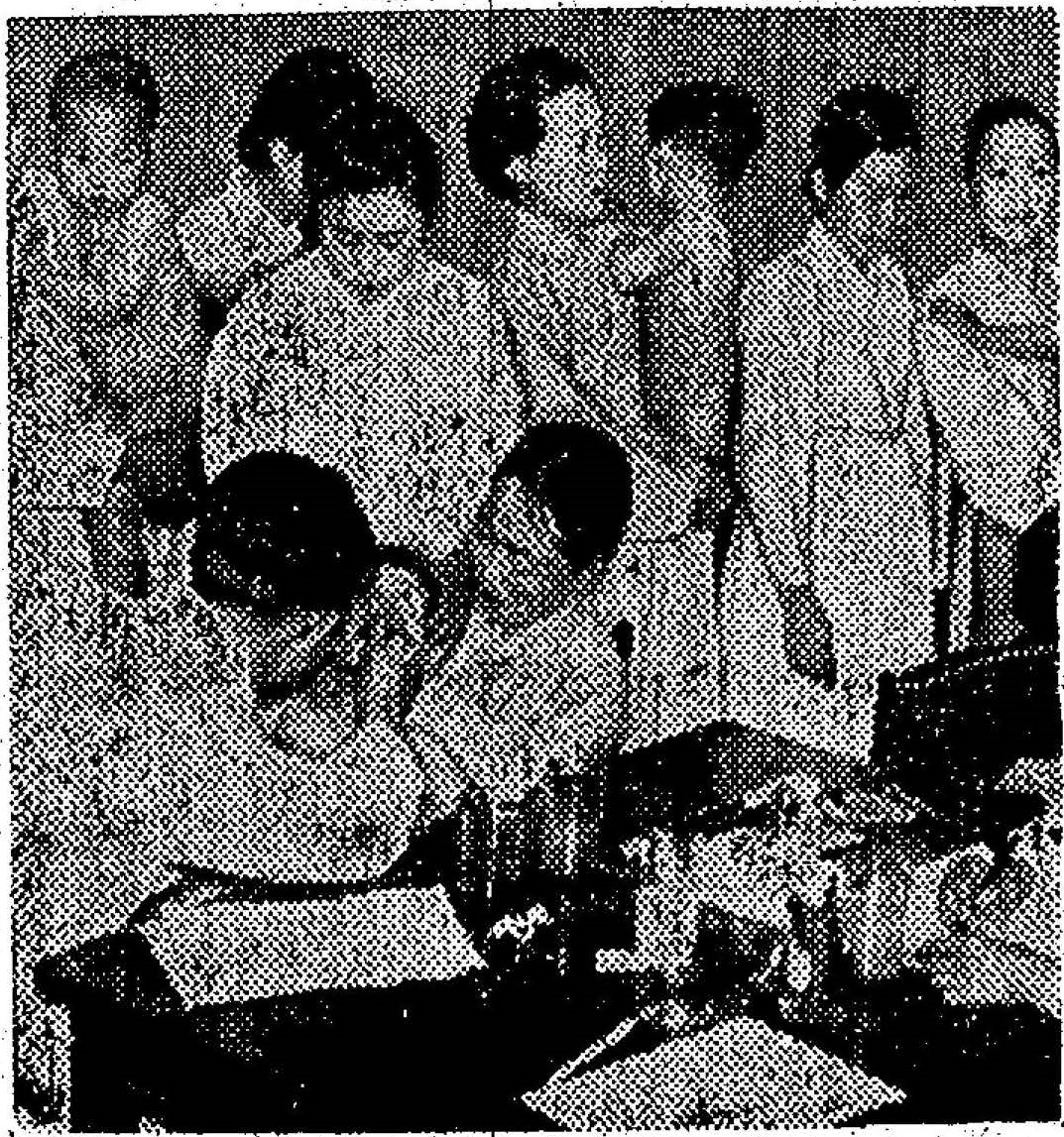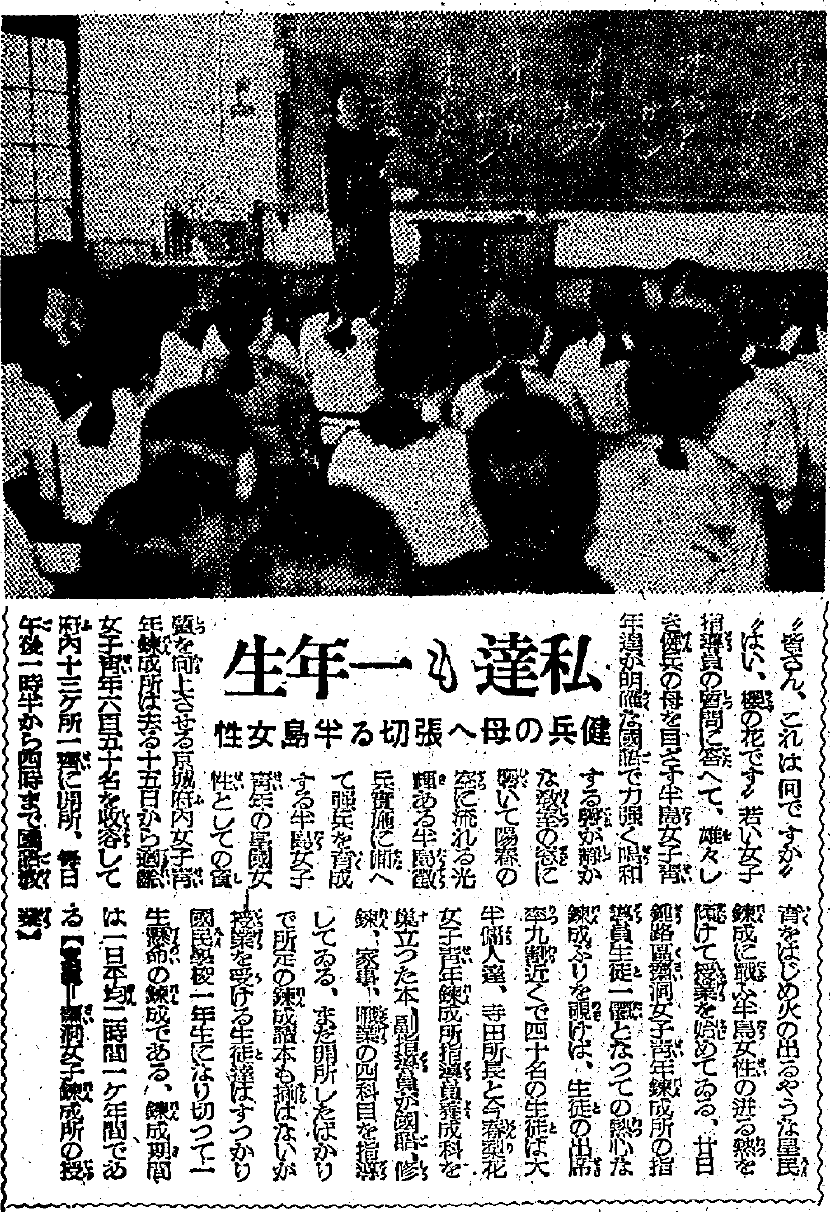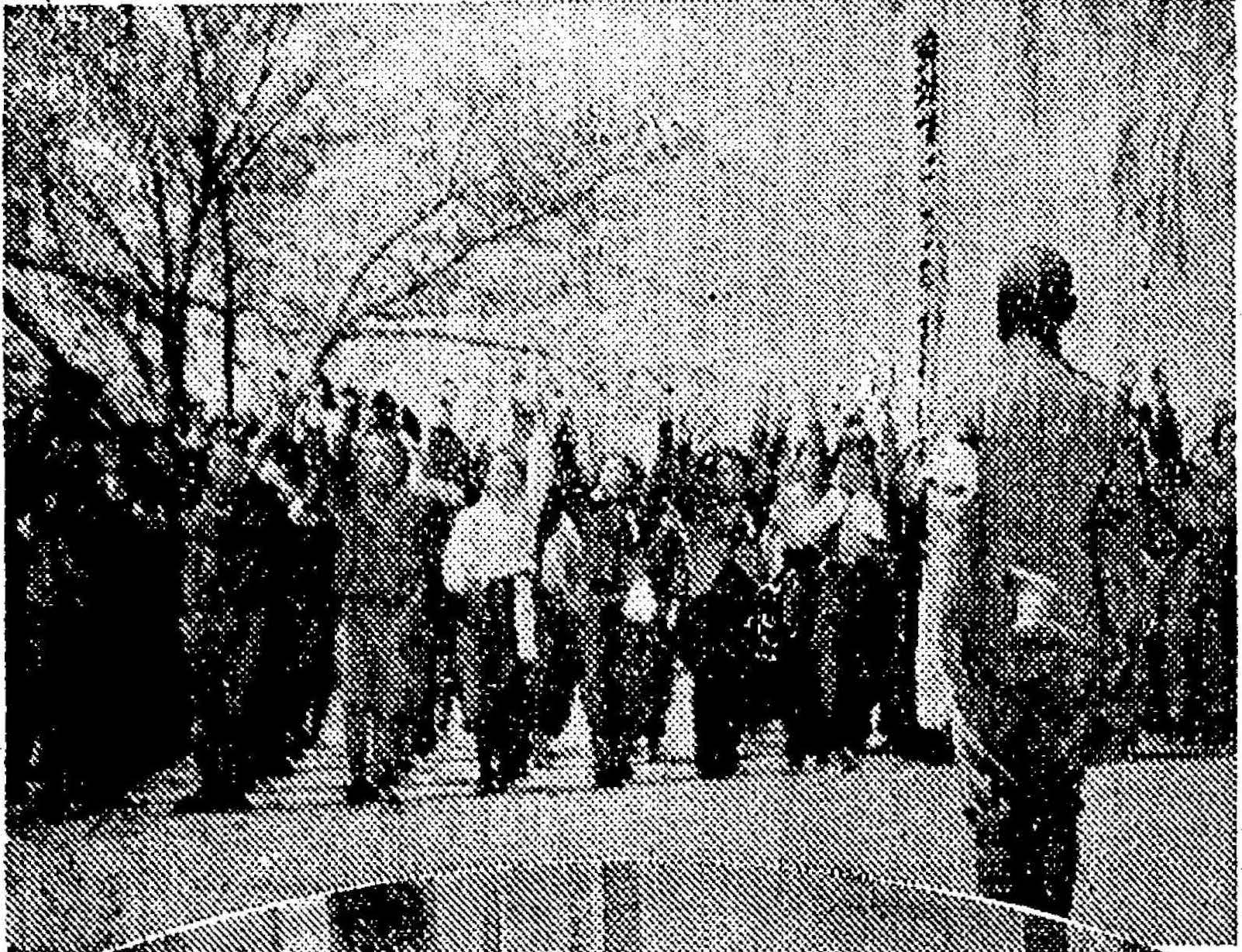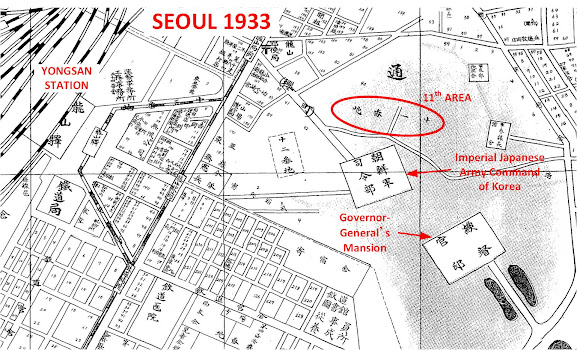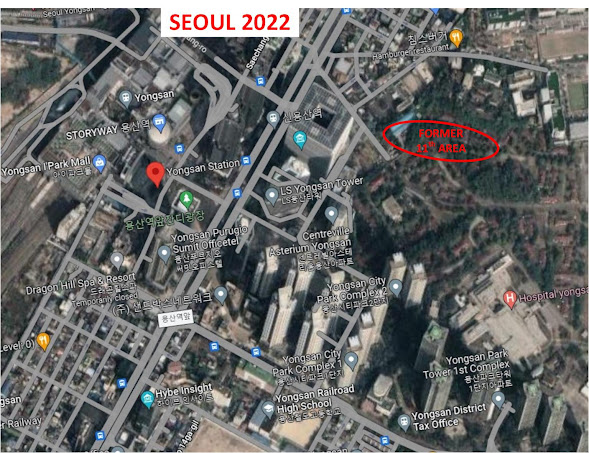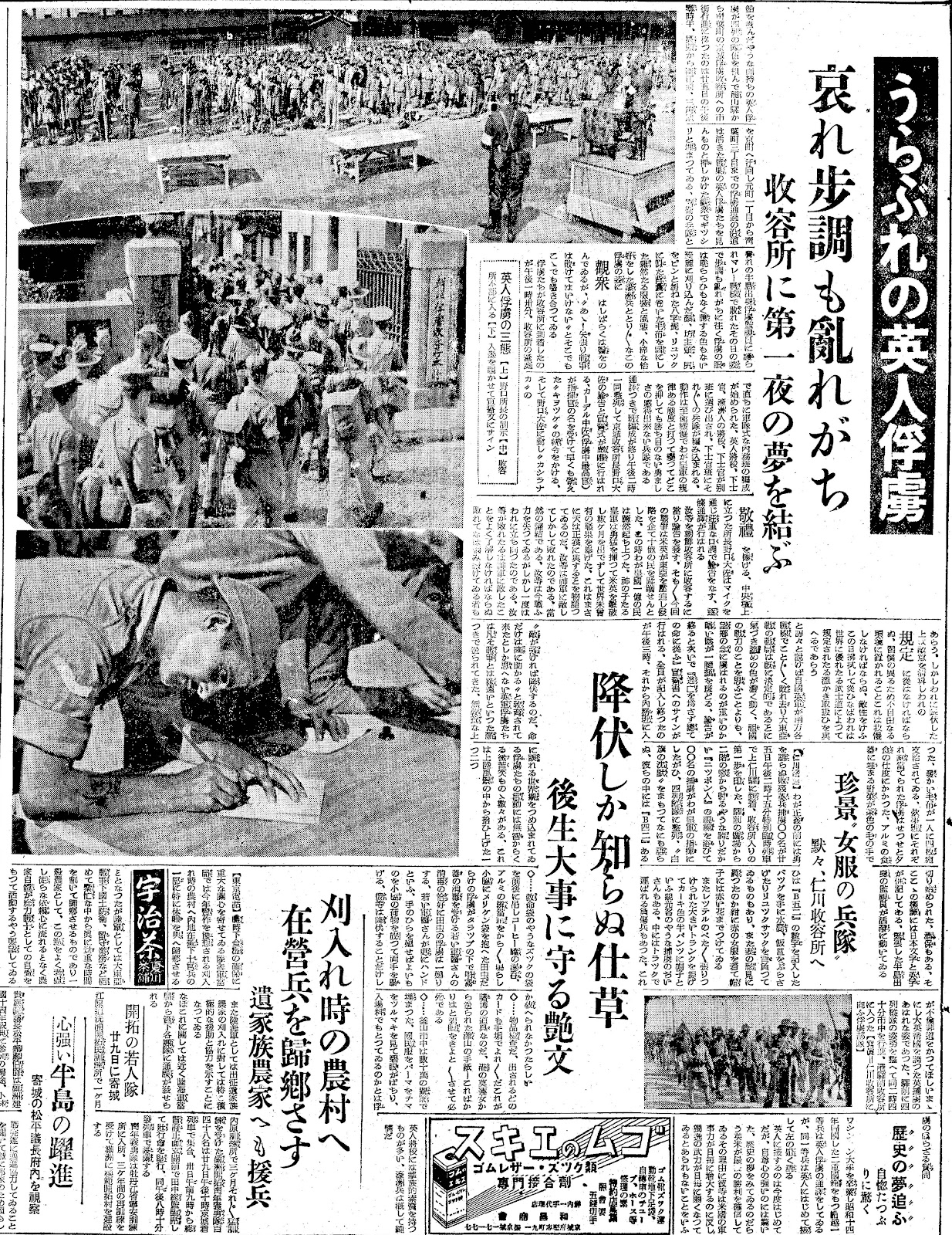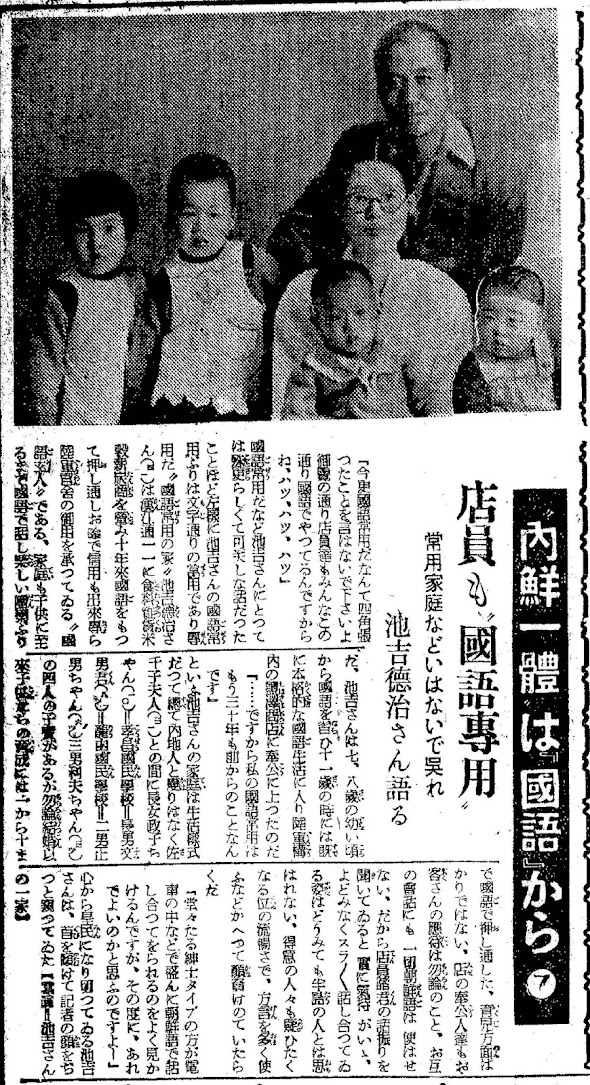
This Korean father made sure his family and employees exclusively spoke Japanese, he ran a store supplying residences of Imperial Japanese Army officers in Yongsan, said he got triggered seeing ‘bold gentleman types speaking to each other enthusiastically in Korean’ inside the trains (Seoul 1942)
Photo: Ikeyoshi family: Tokuji (41) and his wife Sachiko (31). L-to-R: daughter Masako (10), sons Fumio (8), Masao (6), Toshio (3).
(Translation)
Gyeongseong Ilbo (Keijo Nippo) May 20, 1942
Japanese-Korean unification starts with the Japanese language
Store employees also ‘speak Japanese exclusively’
No need to call us a ‘Japanese-speaking family’
Mr. Tokuji Ikeyoshi tells his story
“Please don’t call us regular Japanese speakers – that’s such a stuffy phrase. All our store employees are using the Japanese language as you can see here. Ha, ha, ha!”
The word “regular Japanese speaker” sounded especially funny to Mr. Ikeyoshi. Indeed, Mr. Ikeyoshi’s use of the Japanese language is literally not only regular, but also exclusive. Mr. Tokuji Ikeyoshi (41) has run his business selling food supplies, miscellaneous goods, rice, grains, firewood, and coal on 11 Hangang-daero for 10 years. Thanks to his persistence in speaking Japanese, he has been able to gain people’s trust, and he has been exclusively entrusted with supplying the living quarters of Imperial Japanese Army officers.
He is an “expert in the Japanese language”. Even his children speak Japanese at home, and they make a happy family. Mr. Ikeyoshi learned Japanese from the time he was 7 or 8 years old. By the time he was 11, he had already begun a full-fledged life speaking the Japanese language, and he went to work for Shiozawa Shop within the grounds of the Imperial Japanese Army base.
“… so I have been speaking Japanese regularly for the past 30 years”, said Mr. Ikeyoshi. The lifestyle of Mr. Ikeyoshi’s family does not differ at all from Japanese families. He has four children with his wife Sachiko (31): Masako (10), the eldest daughter, who attends Hyochang National School; Fumio (8), the eldest son, who attends Yongsan National School; Masao (6), the second son; and Toshio (3), the third son. Of course, since their marriage, they have been involved in raising all of their children thoroughly in the Japanese language.
It does not stop with the children. The store employees are not allowed to speak Korean at all, not only when greeting customers, but also in their conversations with each other. That is why it feels very good listening to the store employees when they speak.
The way they speak Japanese so fluently and without hesitation, it is hard to believe that they are Koreans. They are so fluent in Japanese that even the regular customers are inclined to doubt that they are Korean.
On the other hand, those who speak lots of dialect are shameless wretches. “In the trains, I often see these bold gentleman types speaking to each other enthusiastically in Korean. Every time I see them, I wonder if it is really OK for them to be this way”, said Mr. Ikeyoshi, who has become a true Imperial Japanese person, as he tilted his head and looked at the reporter intently. [Photo: Mr. Ikeyoshi’s family]
(End of translation)
Source: https://www.archive.org/details/kjnp-1942-05-20
The Ikeyoshi family ran their business at 11 Hangang-daero (otherwise known as the 11th Area), which was right inside the grounds of the Imperial Japanese Army’s military base and very close to the Governor-General’s mansion and the command center of the Imperial Army. Today, this area is associated with the Yongsan Garrison of the United States military, as well as the Ministry of National Defense of South Korea, which is near the new office of President Yoon.
Below is a 1933 map of Seoul of 11 Hangang-daero compared to a Google map from today.
(Transcription)
京城日報 1942年5月20日
内鮮一体は『国語』から
店員も”国語専用”
常用家庭などいわないで呉れ
池吉徳治さん語る
「今更国語常用だなんて四角張ったことを言わないで下さいよ。御覧の通り店員達もみんなこの通り国語でやってるんですからね。ハッ、ハッ、ハッ」
国語常用だなど池吉さんにとっては殊更らしくて可笑しな話だった。ことほど左様に池吉さんの国語常用ぶりは文字通りの常用であり専用だ。”国語常用の家”池吉徳治さん(四一)は漢江通一一に食糧雑貨米穀薪炭商を営み十年来、国語をもって押し通し、お陰で信用も出来、専ら陸軍官舎の御用を承っている。
”国語玄人”である。家庭も子供に至るまで国語で話し、楽しい団欒ぶりだ。池吉さんは七、八歳の幼い頃から国語を習い、十一歳の時には既に本格的な国語生活に入り、陸軍構内の塩沢商店に奉公に上がったのだ。
「...ですから私の国語常用はもう三十年も前からのことなんです」という池吉さんの家庭は生活様式だって総て内地人と変わりはなく、佐千子夫人(三一)との間に長女政子ちゃん(一〇)=考昌国民学校=長男文男君(八つ)=龍山国民学校=二男正男ちゃん(六つ)三男利夫ちゃん(三つ)の四人の子供があるが、勿論結婚以来子供たちの育成には一から十まで国語で押し通した。
育児方面ばかりではない。店の奉公人達もお客さんの応待は勿論のこと、お互いの会話にも一切朝鮮語は使わせない。だから店員諸君の話し振りを聞いていると、実に気持ちがいい。
よどみなくスラスラ話し合っている姿はどうみても半島の人とは思われない。得意の人々も疑いたくなる位の流暢さで、方言を多く使うなどかえって顔負けのていたらくだ。
「堂々たる紳士タイプの方が電車の中などで盛んに朝鮮語で話し合っておられるのをよく見かけるんですが、その度に、あれでよいのかと思うのですよー」 心から皇民になり切っている池吉さんは、首を傾けて記者の顔をじっと窺っていた。【写真=池吉さんの一家】
